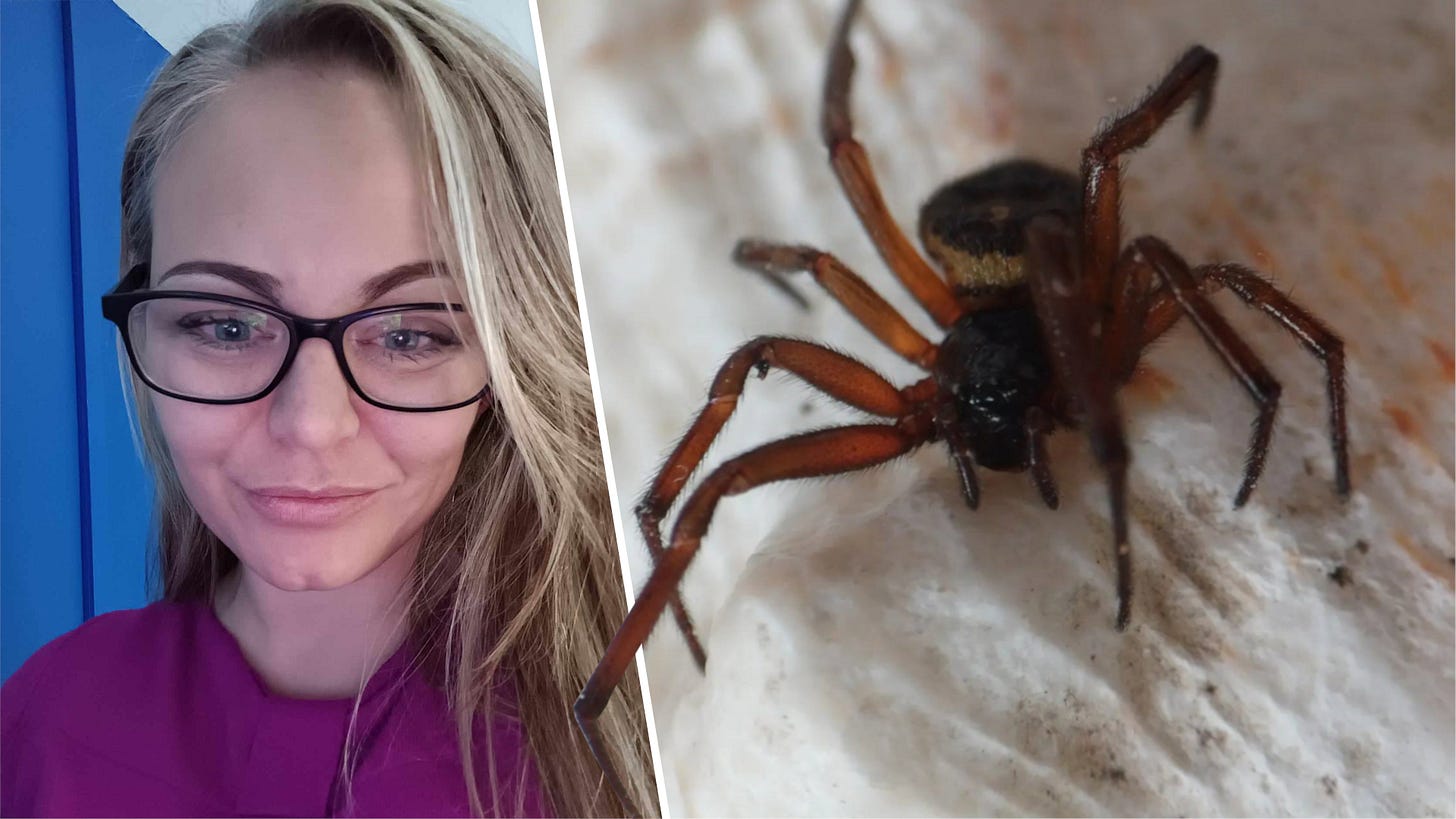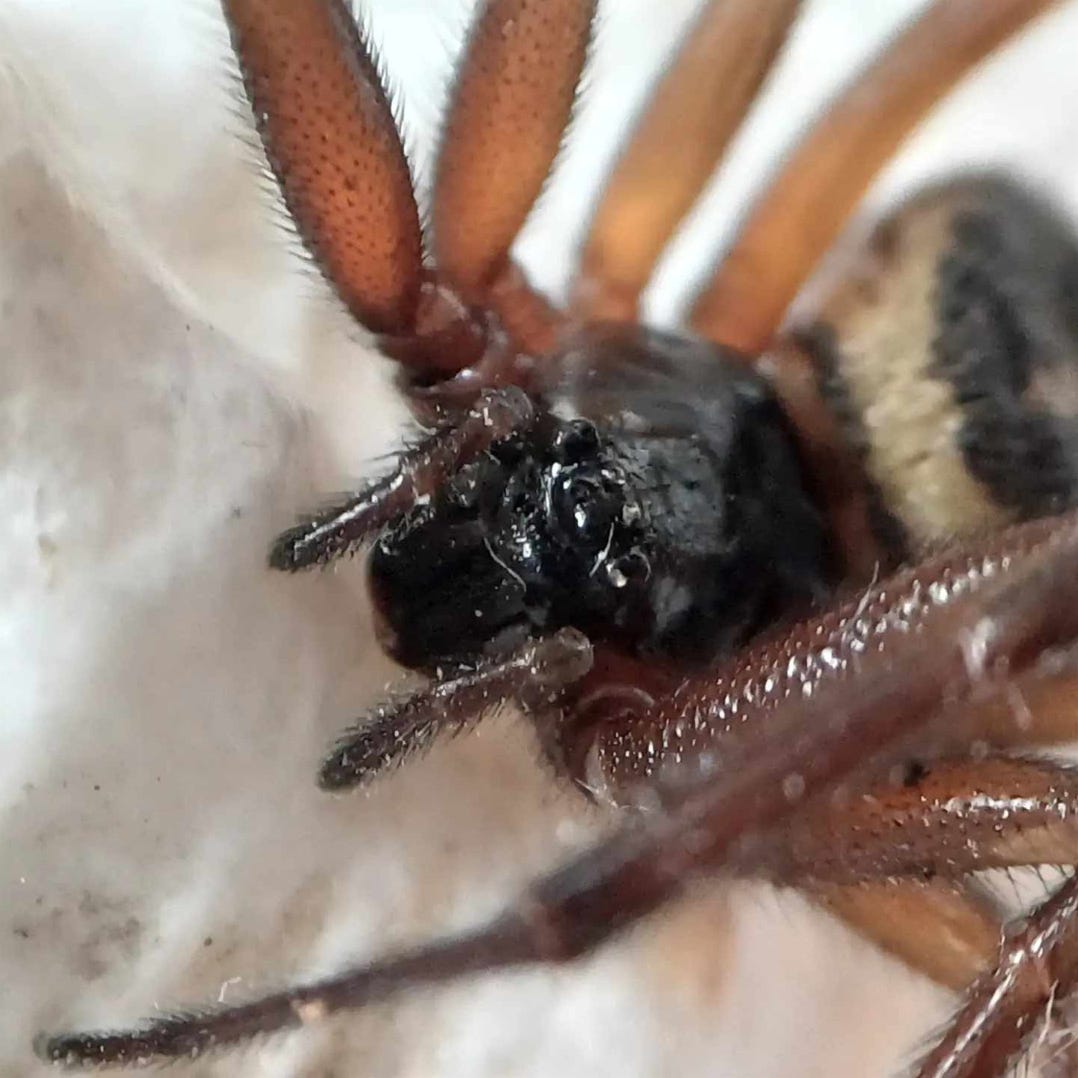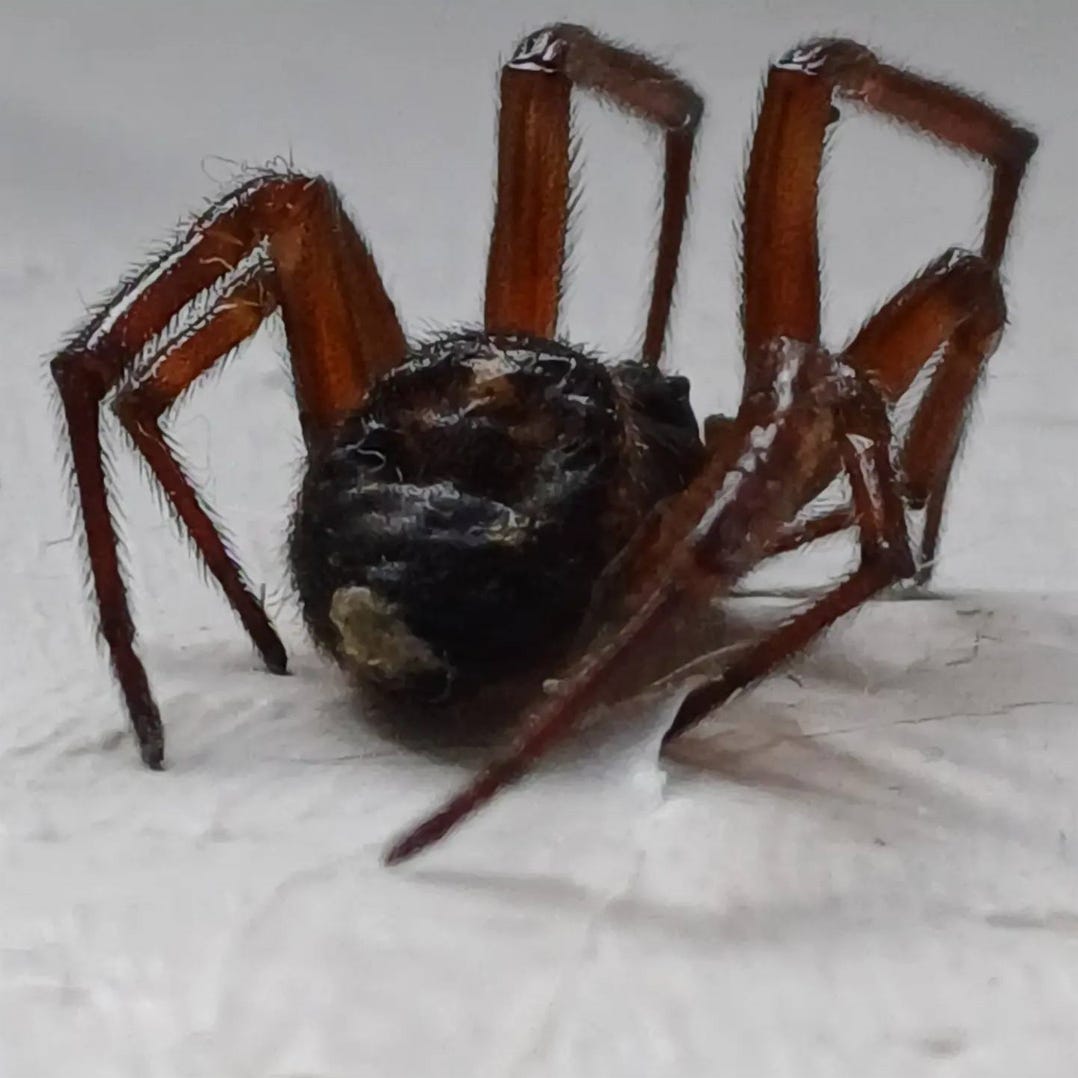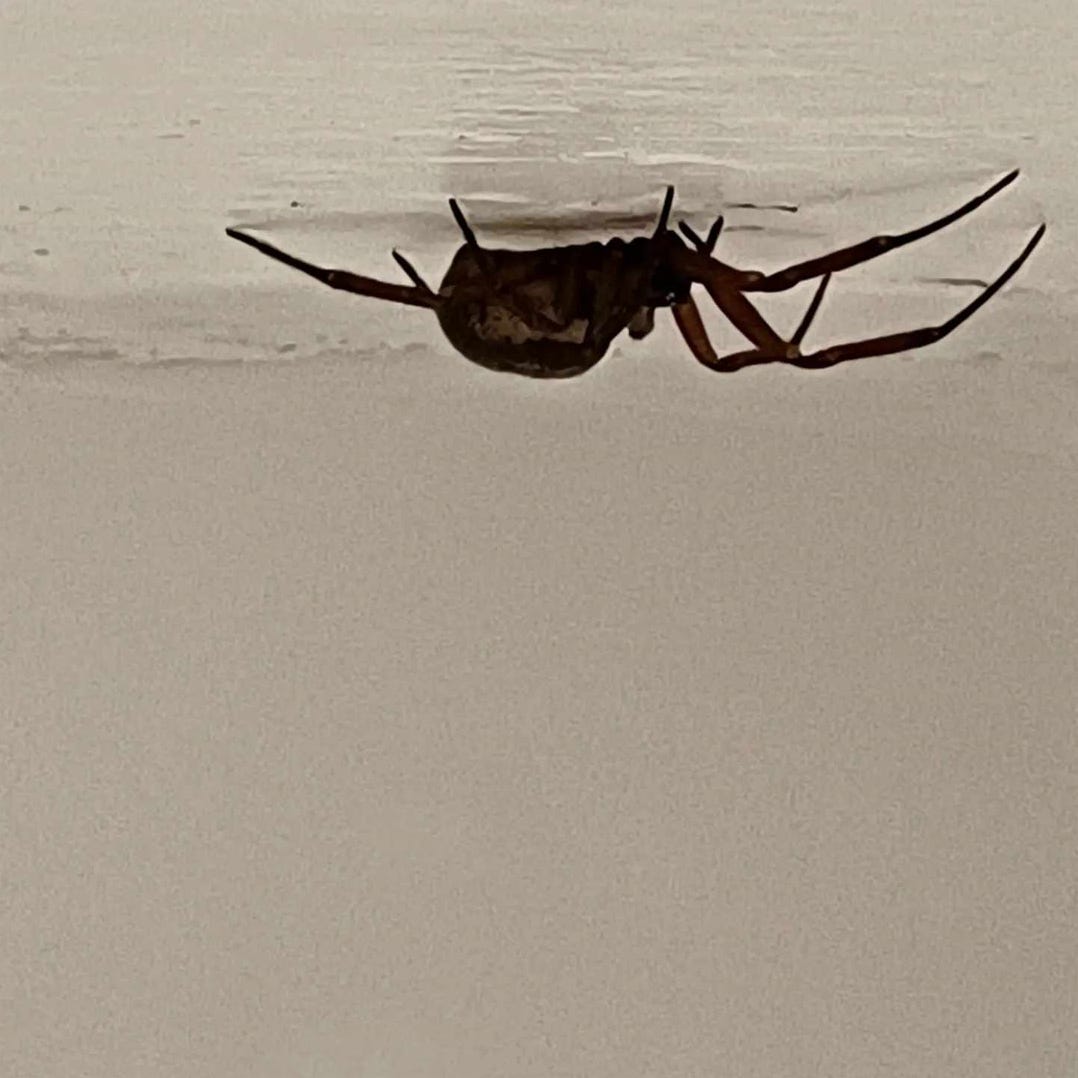'Britain's most dangerous spider' hatched a HUNDRED babies in my house
Michelle Preston doesn't have a fear of spiders anymore, after forming an unlikely bond with a noble false widow
AN arachnophobe faced her fear in an extreme fashion when she let “Britain’s most dangerous spider” hatch a hundred babies in her house.
Michelle Preston, 46, said she had “quite a fear of spiders” before she saw the false widow hanging upside down by her bathroom vent.
“The spider just kinda turned up one day,” she said.
“I felt this was a different kind of spider, I felt curious and a little anxious, so I tried to take some close up pictures without disturbing it to identify which type it was.
“I wasn't sure whether it would start gallivanting around the cottage, so felt I would just work out its behaviours once I knew more about it.”
She soon learned it was a noble false widow, or Steatoda nobilis.
They’re “widely regarded as the most dangerous spider breeding in Britain,” according to a 2020 paper by Clive Hambler, an Oxford University zoologist.
And though their bite is usually no worse than a wasp or bee sting, some victims have experienced intense pain, sickness, feverishness, swelling and redness of the skin.
RELATED ARTICLE
Giant spider species discovered hiding at London school
Media reports about false widows often attribute gruesome injuries to them.
But Michelle, feeling like the species gets “bad press”, decided to let the spider stay in her home in Norton Subcourse, Norfolk.
She said: “I knew that it would most likely keep to its little area, and I think from what I could tell it was female, so I named her ‘Alice’.
“Also I saw this as an opportunity to get over my initial fear I had with spiders by educating myself on them more.”
The new housemate was “honestly no trouble at all”.
Mrs Preston continued: “We would shower in there and do all the usual bathroom things, and she would pop out, usually in the evenings, just above the window vent, and that's about it.
“She was quite happy to leave you to your stuff, and we left her to her stuff.”
But there was another surprise in store.
She said: “Actually I didn't realise she was pregnant, so it wasn't until lots of little tiny babies were all over the ceiling and bath one day that we knew anything.
“We didn't see where she had nested and so it could well have been in the vent itself.
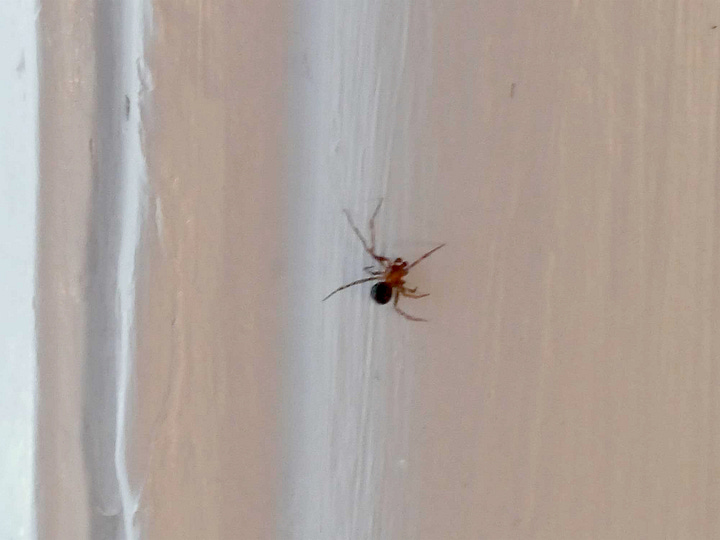

“When the babies hatched, we got a very low-suction handheld hoover and sucked up as many as we could, which didn't hurt them, and then let them outside.
“We didn't manage to get them all, but most of them don't survive anyway, and would probably be eaten by other spiders.”
In the final weeks of Alice’s life, she started to rove a little further from her web.
“So I would get her on to a stick and gently move her to a safer area," Michelle said.
“I would talk to her in a nice soothing voice, as they do obviously pick up on vibrations.
“I finally got to the point where I could gently pick her up without a stick, and move her, and let her walk around on my hand and arm.
“She became like a little friend to me.”
The spider died a couple of weeks after her babies hatched, but has left a lasting impression on Mrs Preston.
She said: “They are very clever and fascinating spiders, and they will eat other spiders in the house too.
“In fact, the more I found out about them, the more my fears turned into fascination.
“Mostly they are scared of us, and it takes a lot out of them to bite – just like it does bees and other insects – so they only really want to use that for their prey.”
She continued: “I understand a fear of spiders and their babies being around the house, as I had these fears too.
“But most of the babies will not even survive, and you can always move them to another safe location.
“The babies are just like loads of mini-spiders, and very cute.”
She added: “If you respect them, they respect you.”
Noble false widows are not native to Britain and are thought to have arrived from the Canary Islands in banana boxes in the late 1800s before slowly spreading northwards.
Despite their bad reputation, they’re unlikely to attack unless provoked or trapped between clothes and skin.





